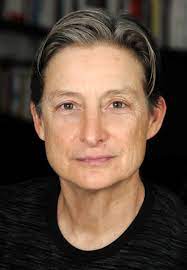Butler, Judith

Bio: (1956-) American philosopher and gender theorist. Judith Butler is one of the most eminent theorists in the field of gender studies, feminism, and queer theory. Her work has intellectual roots, except in feminism, in the works of Sigmund Freud, Foucault, Hans-Georg Gadamer, Schütz, Georg Wilhelm Friedrich Hegel, and Derrida. Butler holds a doctorate from Yale and has been teaching at the University of California, Berkeley since 1993.
In Gender Trouble (1990), Butler argues that feminism, by embracing the concept of coherent gender identity, has influenced the strengthening of the binary gender order, although feminism has been very critical of that same binary gender order. The uncritical adoption of the norms of heterosexuality is the basis of the binary order and the dualism it produces. Sex is always gendered, and the reason for that is that every observation and interpretation of the human body takes place within a socially determined context and through gendered language. After the birth of a baby, the sex is determined, and the gendered language shapes the gender patterns of that person.
Butler believes that gender identity always grows out of performance. Performative repetition of the gender role is strictly regulated and limited by norms, and it produces a gender identity and creates the illusion of the existence of natural behavior inherent in gender. Butler believes that the construction of gender identity should be subverted and the social and imitative nature of gender itself should be revealed. This will lead to the "denaturalization" of the body and gender. She believes that within the LGBT context, gender is not necessarily derived from sex, desire, or sexuality. Gender identity performance and gendered language serve to reproduce heterosexuality.
Theoretical approaches
Feminism, Sociological Queer Theory Feminism, Psychoanalytic Postmodern TheoryMain works
Subjects of Desire (1987);
Gender Trouble: Feminism and the Subversion of Identity (1990);
Bodies that Matter: On the Discursive Limits of „Sex’’ (1993);
The Psychic Life of Power: Theories of Subjection (1997);
Antigone's Claim (2000);
Undoing Gender (2004);
Giving an Account of Oneself (2005);
The Power of Religion in the Public Sphere (2011);
Parting Ways: Jewishness and the Critique of Zionism (2012);
Dispossession: the Performative in the Political (2013);
Senses of the Subject (2015);
Notes Toward a Performative Theory of Assembly (2015);
The Force of Nonviolence: An Ethico-Political Bind (2020).

